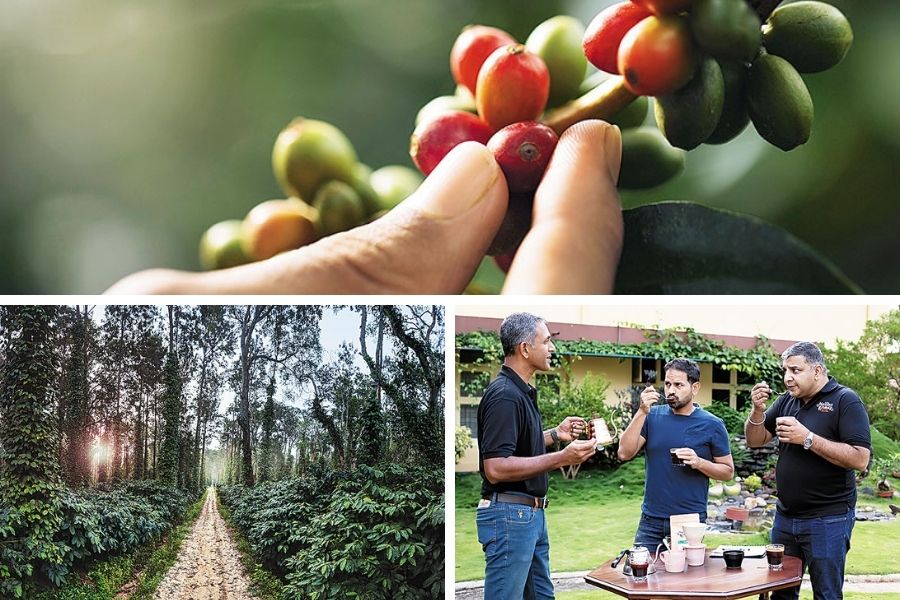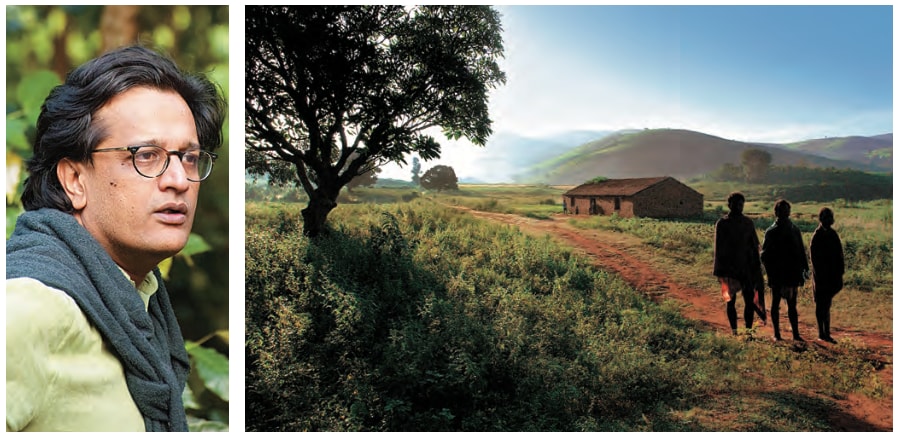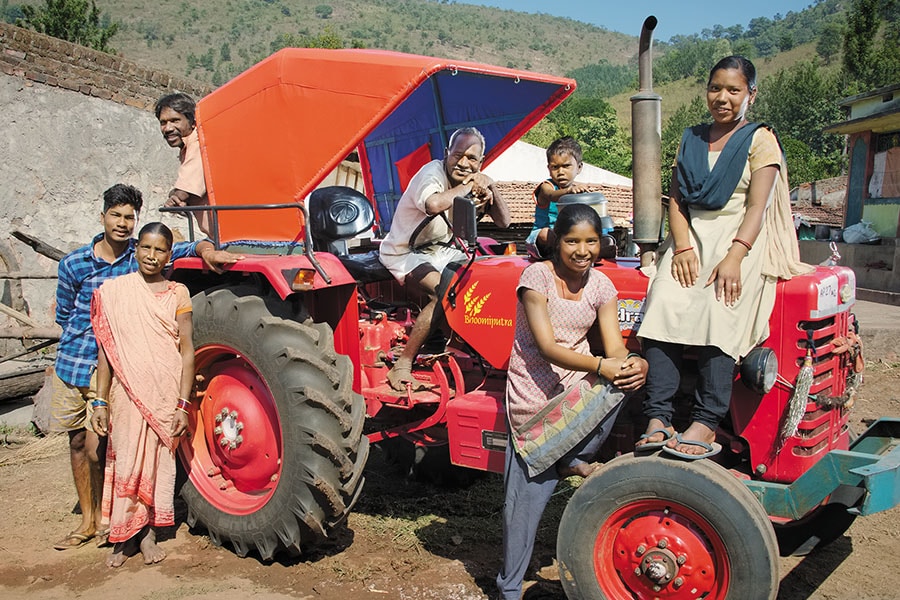
The artisanal coffee revolution in India is here
Artisanal coffee brands are finding takers in India, as millennial enthusiasts experiment with new flavours and home-brewing and more people move away from instant coffee, inspiring coffee entrepreneurs to innovate and reimagine conventional coffee profiles
 (Clockwise from top) A coffee bean cherry; Maverick & Farmer partners at a coffee tasting session; the company’s coffee estate in Coorg
(Clockwise from top) A coffee bean cherry; Maverick & Farmer partners at a coffee tasting session; the company’s coffee estate in Coorg
Image: Pavan Srinivas/Maverick & Farmer
Arabica or Robusta, finely ground or course, cold brew or hot, mellow or strong. Every coffee lover has a preference for their perfect cup. And coffee entrepreneurs are taking things several steps forward by innovating and reimagining conventional coffee profiles with new techniques of cultivation and processing, unexplored flavours and pairing of ingredients.
“People are beginning to discover and appreciate newer flavours, aromas, textures, roast profiles, and the finer nuances of coffee,” says Ashish D’abreo, co-founder of Maverick & Farmer, an artisanal coffee brand. “India is slowly but surely moving away from the obsession with instant coffee and people are beginning to understand how coffee is grown, processed, sourced, etc.” Maverick & Farmer—founded by Sreeram G, Ashish D’abreo and Tej Thammaiah in 2018—has come up with arguably the world’s first cold-smoked coffee, which is smoked for 13 to 14 hours to infuse the beans with the earthiness and flavours of the firewood.
To create new flavour profiles and tasting notes, the company is experimenting with methods like lactic acid bacteria fermentation, oak-wood fermentation, milk soothing, beer barrel ageing, honey sun-drying and orange pulp fermentation, among others. “In India, we often end up following trends set by other countries, be it coffee production or consumption. We’re trying to push the envelope by creating newer specialty offerings unique to India,” says Sreeram.
Millennials have been at the forefront of this new-found enthusiasm for artisanal coffees, and are keen to try alternative coffee brewing methods at home. In February, Lavazza India conducted a survey that found 69 percent of Indian millennials relate to coffee as a companion and nearly 50 percent opted for a cup of coffee as the first meal of the day.
“Coffee lovers like me are always looking for something new to try. We want to taste as many new formats as we can,” says Shaurya Sharma, a coffee enthusiast. “It was during my trips abroad that I developed a taste for specialty coffee. I found new coffees at cafes on every other street. This isn’t the case in India, where we’re still obsessed with McCafe and Café Coffee Day. Thankfully things are changing, and I’ve discovered a couple of great coffee roasters here.”
_20220316022208_102x77.jpg)
 (From left) Manoj Kumar, founder, Araku Coffee; the landscape of Araku Valley, one of the finest coffee-producing regions of the world
(From left) Manoj Kumar, founder, Araku Coffee; the landscape of Araku Valley, one of the finest coffee-producing regions of the world.jpg) Sherri Johns, a global coffee expert and consultant for over 40 years
Sherri Johns, a global coffee expert and consultant for over 40 years
 Araku Coffee was started as a livelihood project for local tribals by ensuring profits for the farmers
Araku Coffee was started as a livelihood project for local tribals by ensuring profits for the farmers




